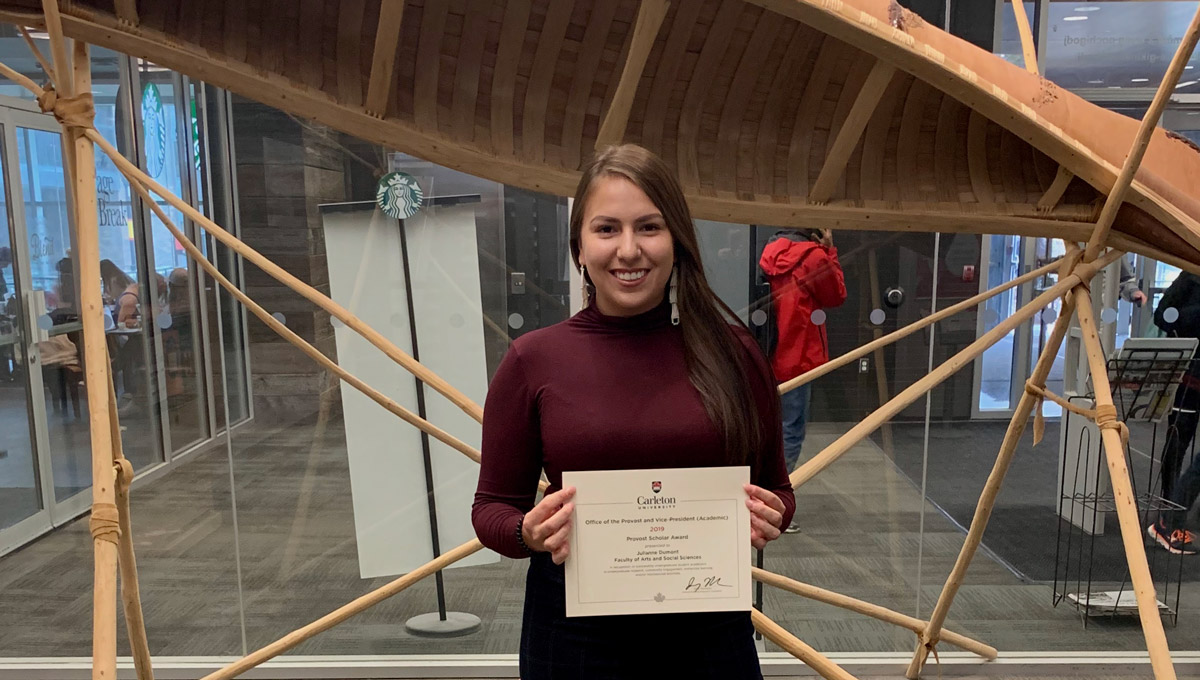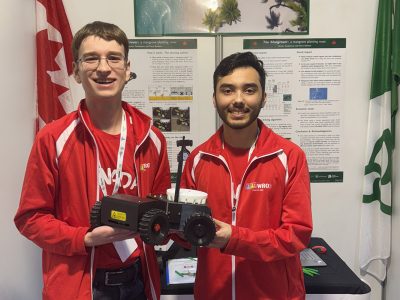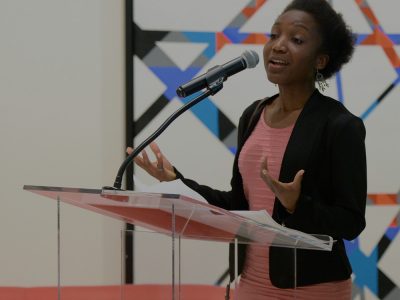By Leah Coppella
Julianne Dumont was born and raised in Kitigan Zibi Anishinabeg and, as an undergraduate, she is already doing essential work for her community.
Her senior thesis project looks at the well-being of Indigenous students in post-secondary education, research that won a Provost Scholar Award for its significance to Carleton’s Indigenous students and those across the country.
Dumont joined the Research on Emotion and Addictions Development and Methodology Lab, where she assessed the extent to which perceptions of the colonial western education system may contribute negatively to the well-being of Indigenous post-secondary students.
“In particular, I wanted to assess how cultural practices and safe spaces may protect against adverse well-being for Indigenous students,” says Dumont, whose work aims to validate Anishinabeg ways of knowing and being.
Dumont is also a substitute teacher at Maniwaki Woodland School, a youth worker with the Maniwaki Native Friendship Centre, and a Life Skills Teacher with Kitigan Zibi Kikinamadinan.
“Honestly I find it’s pretty easy to stay motivated since I am passionate about the work I’m doing. I love working with the youth so when I work with them, it doesn’t really feel like a job at all.”
Dumont’s research is not only going to have an impact on future generations, but communities now lacking human resources they desperately need.
“I think it’s important because there’s a real lack of First Nations professionals and, in particular, health professionals in our communities,” she says.

Julianne Dumont
Dumont wants to change that, and her journey at Carleton represents the beginning of this path.
At first, Dumont found the shift from growing up and attending school on reserve to attending post-secondary very difficult.
“Not living with my family and being away from my community, that was difficult for the first year to adjust . . . It was difficult not having many Indigenous professors, supervisors or mentors to help me along the path. But having a strong sense of community at Carleton with the Indigenous students from all over Turtle Island really helped me push through,” Dumont says.
“The reason why I’m in higher education is to gain a certain knowledge to bring back to my community. Those doing the same, trying to get an education and give back to their communities . . . I just want to say migwetch for your work.”
But even with Dumont’s passion, burnout became an issue toward the end of her final year when she was juggling multiple projects.
“I tried to make my thesis research as accountable as possible, so I was facilitating sharing circles with Indigenous students from the Indigenous centers at Cégep Heritage College, Algonquin College and Carleton,” she says, adding that she also had a full course load, was working part time, and writing her thesis simultaneously.
Dumont recognizes the importance of well-being and quickly prioritized her tasks in order to stay true to her dream. She hopes to build relationships with Anishinabeg communities before opening her own practice, where she can then provide land-based Anishinabeg healing with her people as an Anishinabekwe clinical psychologist.
“Working with the youth makes me more determined to continue my education to show them what’s possible for us as Anishinabeg people,” she says.
Dumont will attend Concordia University to do a master’s in Clinical Psychology and hopes to get her PhD in the near future.
Spring Convocation is taking place from Monday, June 10 until Friday, June 14. The ceremonies will be broadcast online via live streaming at Carleton.ca/convocation/live.
Friday, May 31, 2019 in Convocation, Faculty of Arts and Social Sciences
Share: Twitter, Facebook



